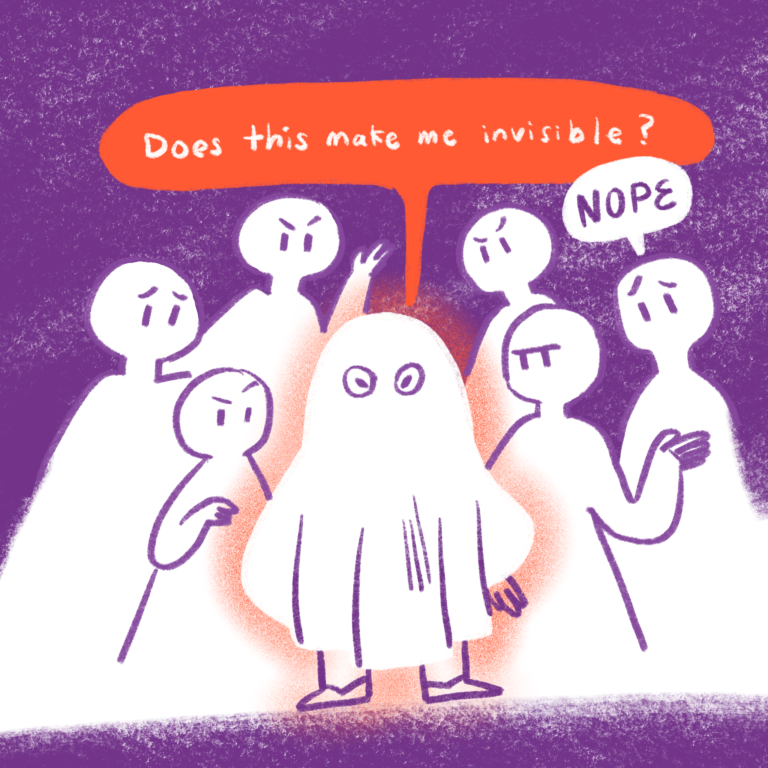If you have social anxiety like I do, it can feel so isolating.
How do you explain what you’re going through to family and friends?
Because words often don’t do the feelings justice, I put together a series of doodles of what social anxiety feels like . (Apart from my scribblings, I got my team — a counselor, a clinical psychologist, and an illustrator — to doodle too!)
“They’re staring at me… right?”


Riynn said:
“Every time I walk into a room, I’ll feel the stares of people on me. Maybe it’s just me imagining things, but I feel that they’re judging me for how I look and what I say.”
Eye contact anxiety is common among people with social anxiety. In a study, participants with social anxiety paid a lot more attention to how others looked at them (even if they avoided eye contact).
👉 Recommended article: How to make eye contact when socially anxious
“Are they talking behind my back?”
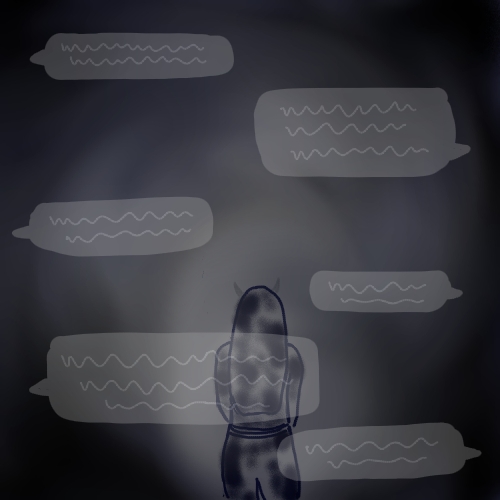
Yue Yun shared how social anxiety felt like her peers gossiping about her in the shadows:
“…I felt like people were talking behind my back and I was being seen as the devil in their stories.”
Fear of judgment is a major driver of social anxiety. In fact, a two-year study of 157 adults showed that the more fear of judgment they had, the more severe their social anxiety was.
“I wish I’m invisible…”
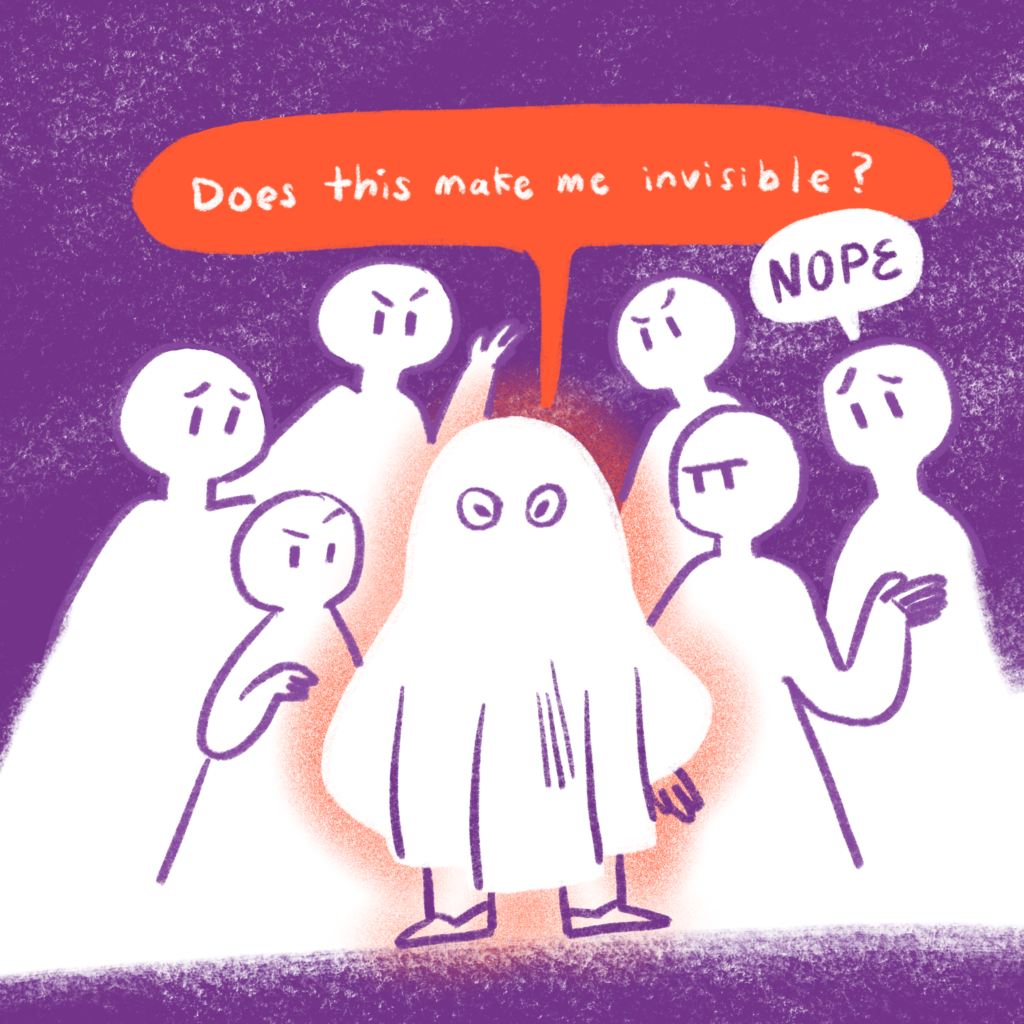
Riynn shared:
“In a social setting — whether it’s just hanging out with friends or discussing our assignment — I’d want to disappear into the background. Sometimes I wish I was invisible… so that I wouldn’t need to face my fear of interacting with people.”
Wanting to minimize your presence is an example of safety behaviors: behaviors that help you avoid social anxiety but prevent you from truly connecting with the other person.
Other examples of safety behaviors include not sharing much about yourself, overly rehearsing your words, only talking to people you know at an event, and so on.
“Why did I say that!?”

Riynn shared:
“After a long day, I’d unwind by replaying all the stupid things I said to every single person, wondering if anything I said would offend anyone and then cringing at the thought of it.”
Research shows that people with social anxiety tend to ruminate after conversations. Kind of like a Spotify song on endless repeat…

In fact, rumination is often driven by what’s going on in your mind:
“I’m never good enough”
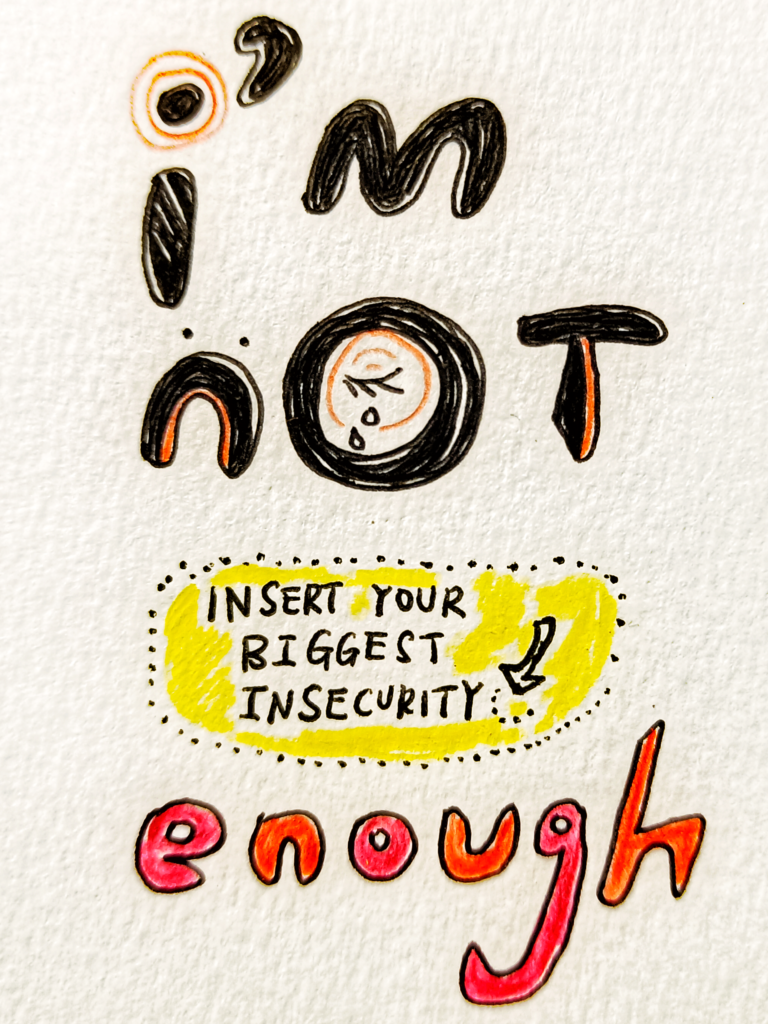
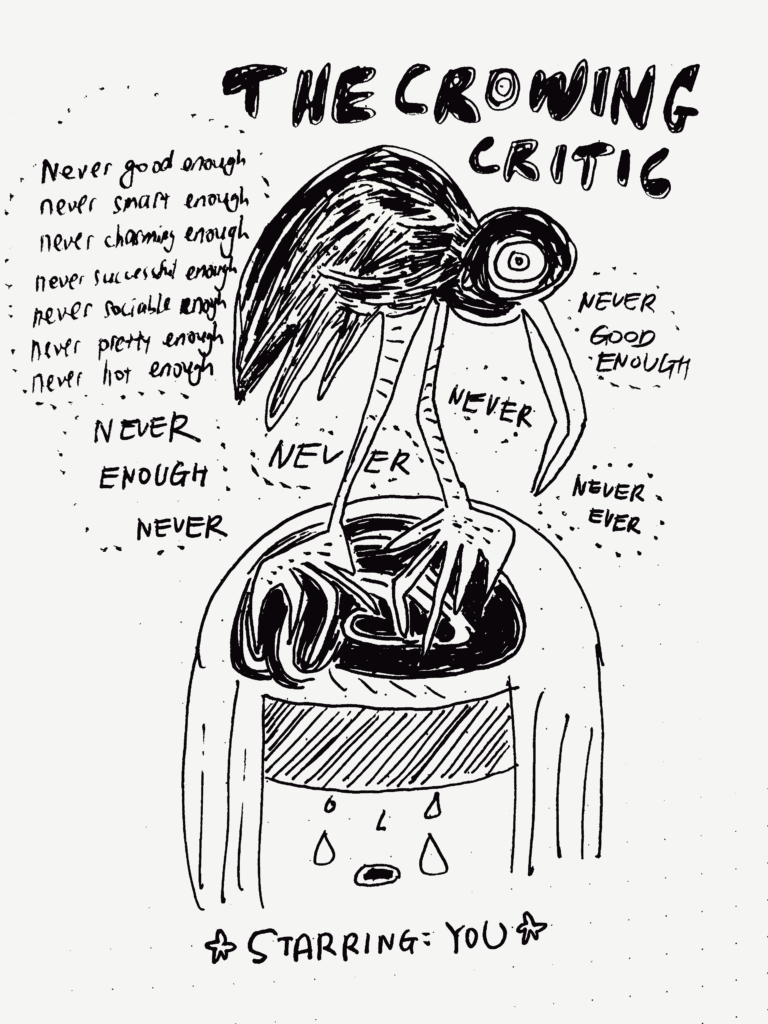
During my undergrad days, I was constantly criticizing myself in social situations. If I thought I said something boring/offensive, I’d mentally berate myself on the spot: “Why did you say that!? That’s going to turn them off!”
Socially anxious people like myself are far more likely to criticize ourselves. In fact, a study shows that social anxiety is closely connected with shame and self-criticism.
Tsung Wai Aw, MD, a clinical instructor at the Yale University School of Medicine and the founder of Telehope Health, comments:
“Regardless of whether they would experience a slightly shameful event or a highly shameful event, people who suffer from social anxiety disorder seem to have a high level of self-criticism.”
Here’s a particularly painful example of feeling not good enough…
“No one will find me attractive…”

While completing her BA in Psychology at Boston University, Iffah, M.Couns., volunteered at its Social Adjustment and Bullying Prevention Laboratory.
This was also when her symptoms of social anxiety and body dysmorphia worsened. In her words:
“When I walked around the George Sherman Union and down Commonwealth Avenue, my mind was focused on how unwanted I was — I saw myself as this ugly Asian girl whose ugliness made everything (intimacy, love, sisterhood, mutual liking, feeling at home) impossible.”
Fast forward to today: Iffah is much more able to cope with her social anxiety, thanks to her skills as a therapist.
––
I hope that these doodles make it easier for you to explain what social anxiety is to others. And if you need more support, check out the following resources below:

